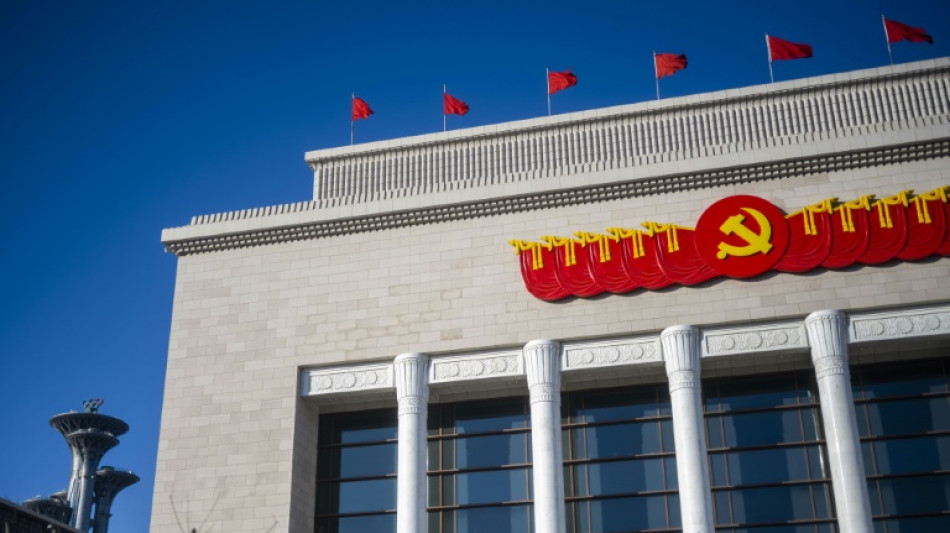
-
 Timeline: How the Bondi Beach mass shooting unfolded
Timeline: How the Bondi Beach mass shooting unfolded
-
On the campaign trail in a tug-of-war Myanmar town

-
 Bondi Beach suspect visited Philippines on Indian passport
Bondi Beach suspect visited Philippines on Indian passport
-
Kenyan girls still afflicted by genital mutilation years after ban

-
 Djokovic to warm up for Australian Open in Adelaide
Djokovic to warm up for Australian Open in Adelaide
-
Man bailed for fire protest on track at Hong Kong's richest horse race

-
 Men's ATP tennis to apply extreme heat rule from 2026
Men's ATP tennis to apply extreme heat rule from 2026
-
Cunningham leads Pistons past Celtics, Nuggets outlast Rockets

-
 10-year-old girl, Holocaust survivors among Bondi Beach dead
10-year-old girl, Holocaust survivors among Bondi Beach dead
-
Steelers edge towards NFL playoffs as Dolphins eliminated

-
 Australian PM says 'Islamic State ideology' drove Bondi Beach gunmen
Australian PM says 'Islamic State ideology' drove Bondi Beach gunmen
-
Canada plow-maker can't clear path through Trump tariffs

-
 Bank of Japan expected to hike rates to 30-year high
Bank of Japan expected to hike rates to 30-year high
-
Cunningham leads Pistons past Celtics

-
 Stokes tells England to 'show a bit of dog' in must-win Adelaide Test
Stokes tells England to 'show a bit of dog' in must-win Adelaide Test
-
EU to unveil plan to tackle housing crisis

-
 EU set to scrap 2035 combustion-engine ban in car industry boost
EU set to scrap 2035 combustion-engine ban in car industry boost
-
Australian PM visits Bondi Beach hero in hospital

-
 'Easiest scam in the world': Musicians sound alarm over AI impersonators
'Easiest scam in the world': Musicians sound alarm over AI impersonators
-
'Waiting to die': the dirty business of recycling in Vietnam

-
 Asian markets retreat ahead of US jobs as tech worries weigh
Asian markets retreat ahead of US jobs as tech worries weigh
-
Security beefed up for Ashes Adelaide Test after Bondi shooting

-
 Famed Jerusalem stone still sells despite West Bank economic woes
Famed Jerusalem stone still sells despite West Bank economic woes
-
Trump sues BBC for $10 billion over documentary speech edit

-
 Chile follows Latin American neighbors in lurching right
Chile follows Latin American neighbors in lurching right
-
Will OpenAI be the next tech giant or next Netscape?

-
 Khawaja left out as Australia's Cummins, Lyon back for 3rd Ashes Test
Khawaja left out as Australia's Cummins, Lyon back for 3rd Ashes Test
-
Australia PM says 'Islamic State ideology' drove Bondi Beach shooters

-
 Scheffler wins fourth straight PGA Tour Player of the Year
Scheffler wins fourth straight PGA Tour Player of the Year
-
Nano One Receives C$10.9M from Financing and Government Programs

-
 WelcomeVille Investment Association With Leadership From Reginald Pembroke Rolls Out a Digital Collaboration Platform
WelcomeVille Investment Association With Leadership From Reginald Pembroke Rolls Out a Digital Collaboration Platform
-
Grande Portage Reports Advancements of Transportation Infrastructure at the New Amalga Gold Project

-
 Genflow Completes Dosing Phase of Canine Gene Therapy Trial
Genflow Completes Dosing Phase of Canine Gene Therapy Trial
-
President Trump Cleaning Up Biden's Marijuana Mess - MMJ Preparing to Move FDA Huntington's Cannabis Trials Forward

-
 Security beefed up for Ashes Test after Bondi shooting
Security beefed up for Ashes Test after Bondi shooting
-
Wembanyama blocking Knicks path in NBA Cup final

-
 Amorim seeks clinical Man Utd after 'crazy' Bournemouth clash
Amorim seeks clinical Man Utd after 'crazy' Bournemouth clash
-
Man Utd blow lead three times in 4-4 Bournemouth thriller

-
 Stokes calls on England to 'show a bit of dog' in must-win Adelaide Test
Stokes calls on England to 'show a bit of dog' in must-win Adelaide Test
-
Trump 'considering' push to reclassify marijuana as less dangerous

-
 Chiefs coach Reid backing Mahomes recovery after knee injury
Chiefs coach Reid backing Mahomes recovery after knee injury
-
Trump says Ukraine deal close, Europe proposes peace force

-
 French minister urges angry farmers to trust cow culls, vaccines
French minister urges angry farmers to trust cow culls, vaccines
-
Angelina Jolie reveals mastectomy scars in Time France magazine

-
 Paris Olympics, Paralympics 'net cost' drops to 2.8bn euros: think tank
Paris Olympics, Paralympics 'net cost' drops to 2.8bn euros: think tank
-
Chile president-elect dials down right-wing rhetoric, vows unity

-
 Five Rob Reiner films that rocked, romanced and riveted
Five Rob Reiner films that rocked, romanced and riveted
-
Rob Reiner: Hollywood giant and political activist

-
 Observers say Honduran election fair, but urge faster count
Observers say Honduran election fair, but urge faster count
-
Europe proposes Ukraine peace force as Zelensky hails 'real progress' with US


China pursues gold in global image by hosting Olympics
China warns almost daily against "politicising" this week's Beijing Olympics, but for its rulers, hosting the Games has always been about far more than sport and the medal count.
Even under the shadow of a pandemic, Western accusations of genocide against Muslim minorities and diplomatic boycotts, staging the Olympics is about global prestige for China and its ruling Communist Party, analysts say.
Beijing 2022's difficulties may even increase the country's stock, experts say. Hosting what it calls "a safe and splendid" Games in a pandemic will boost China's claims that its relative success controlling Covid illustrates the superiority of its top-down governing approach.
China's frequent criticisms about Western nations politicising sport is "at the very least ironic, if not completely hypocritical", said Steve Tsang, director of the China Institute at SOAS University of London.
"The fact they are using the Olympic Games as a major political event to project China's international image –- which is a separate political act -– is completely ignored."
China has not always insisted on separating sport and politics.
After the newly founded People’s Republic of China competed in the 1952 Helsinki Games, it then sat out the next quarter century, initially in protest against the presence of athletes from political rival Taiwan, although domestic upheaval under Mao Zedong was also a major factor.
China returned in 1980 at Lake Placid, but later that year it joined the dozens of countries who skipped the Moscow Summer Olympics following the Soviet invasion of Afghanistan.
- Coming-out party -
Since then, China's Communist Party has latched onto the Olympics as leverage in its global power play.
Beijing bid for the 2000 Games but lost to Sydney after the United States and allies raised human rights and other concerns.
Undaunted, the Chinese capital fought back and successfully won the 2008 hosting rights.
With the world watching, it was China's coming-out party -- and it brought the house down, winning both the medal count and international acclaim.
The government left nothing to chance at those Games, shutting down Beijing, using lip-sync singers and computer-generated fireworks during the opening ceremony, and shooing migrant workers and others considered undesirable out of sight.
The upcoming Games will be even more strict, with ultra-tight Covid-19 controls and China warning foreign athletes against making political gestures.
Politics and the Olympics are hardly strange bedfellows, and host countries always hope to use a successful Games to send a wider message.
Tokyo 1964 and Seoul 1988 came with subtexts of national renewal for formerly war-torn countries, and Hitler used the 1936 Games to showcase Nazism's arrival.
- Domestic audience -
But as the only city to host both the Summer and Winter Games, Beijing's return to the Olympic spotlight takes on additional lustre.
Jung Woo Lee, sport policy researcher at the University of Edinburgh, said the Winter Olympics in particular are viewed as a "more exclusive" club of "more advanced and affluent" hosts.
"The staging of the Winter Olympics in their capital city can symbolically mean that China is no longer lagging behind Western democracies in terms of its international prestige," Lee said.
There are domestic gains as well for China's government.
Despite its image of total control, the Communist Party can seem to display a surprising level of insecurity, obsessively playing up its successes to a home audience while sweeping failures under the rug, analysts say.
"The real message is to people in China, how much the Communist Party is able to make China stand tall and make Chinese people proud," Tsang said.
- World Cup next? -
Richard Baka, co-director of the Olympic Research Network at Victoria University in Melbourne, said that despite the uncomfortable scrutiny that might accompany China's hosting of the event, Beijing's leaders would probably do it all over again.
"This signifies: we're now an active force in the modern world. We're a force to contend with," he said.
It may be some time before China hosts the Games again.
New Olympic voting procedures will allow early favourites to be singled out from among future bidding cities, and the IOC may shy away from more China controversy, Baka said.
But that won't stop China from hosting other major sports events.
"They would be saying, 'We run very good Games,'" he added.
"We could maybe run other things again in the future -- maybe a World Cup of soccer."
L.Durand--AMWN